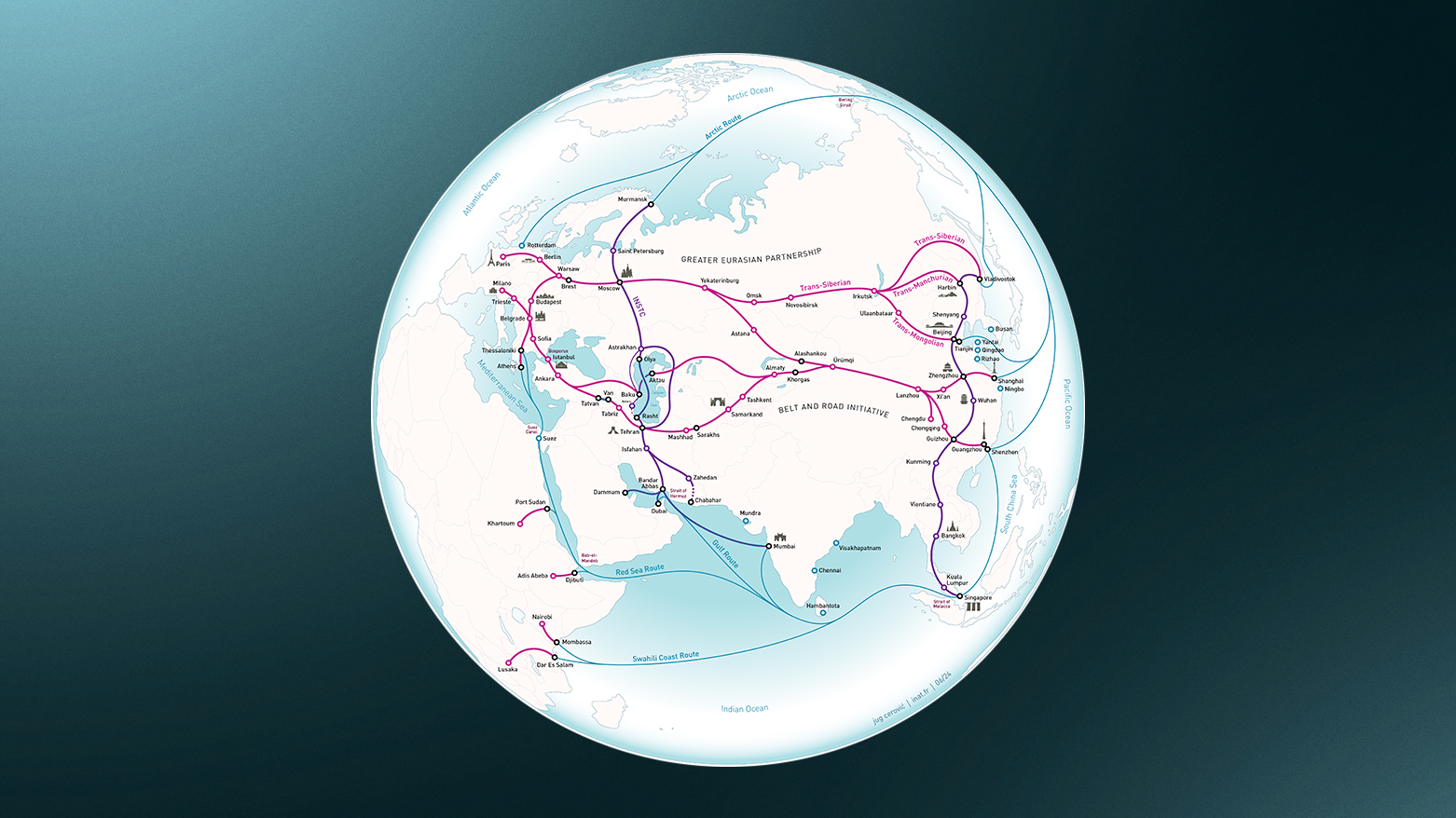
Mamta Singh
University Lecturer
Why Belt and Road is Important for Global Development. (From The Perspective of Globalization and Governance)
Belt and Road initiative (BRI) is a massive plan which will lead to accelerated development, boost regional trade integration and large foreign direct investment. The initiative will also improve growth by building heavy infrastructure.

According to world hunger index there is moderate huger in the world but 31 countries still have hunger as serious issue even though long term efforts by international agencies have been made. “Globally, 840 million people live more than 2 kilometers from all-weather roads, 1 billion people lack electricity, and 4 billion people lack Internet access. Access to basic infrastructure services is critical for creating economic opportunities for the poor.” https://www.worldbank.org/en/topic/infrastructure Hence it is all the more important to work mutually in order to support the most needy people of the world to have a decent standard of living.
Belt and Road initiative (BRI) is a massive plan which will lead to accelerated development, boost regional trade integration and large foreign direct investment. The initiative will also improve growth by building heavy infrastructure.
As Professor Hu (Late Professor HU Biliyang), explained to us in one of his lectures the negative impact of globalization are the regional income disparity, cultural dominance and migration are the worst after effect of the kind of globalization we have seen before. Now with BRI globalization is upgrading and it is allowing global development rather than development of selected few.
“The history of the Silk Road sparks numerous aspirations for the ancient route. Hadrian, the Roman Emperor depicted by French writer Marguerite Yourcenar, was fascinated with the flourishing commerce and trade along the ancient Silk Road. The “Belt and Road” initiative put forward by Chinese President Xi Jinping has amazed the world. There have been three highlights of the initiative. First of all, the markets of Asia, Europe and Africa will be integrated into a community of common interest thanks to the initiative. As the marginal effect generated from globalization has lessened, the world economy has come to need a new growth engine. The connectivity created by the initiative will present Asia with new growth opportunities. By helping with the infrastructure projects of countries along the “Belt and Road” route, China will further open itself to the world and accelerate its development as well. What’s more, China has been making efforts to internationalize the RMB and transform its economic growth towards a focus on higher quality and more inclusiveness. As all countries live on the same planet, none can survive like an isolated Robinson Crusoe. China-Europe cooperation will bring the latter economic growth and job opportunities, while Europe, Asia and Africa will turn into a community of shared interests, responsibilities and destinies in terms of geopolitical strategy. Though globalization led by Western countries did bring prosperity to cities and coastal areas, villages, inland areas and Oriental countries were left behind. By calling for a “global rebalance,” the initiative points to a brighter future for globalization.” https://www.usfq.edu.ec/sites/default/files/inline-files/belt-and-road-initiative-points-to-brighter-globalization.pdf
There are three major reasons for why BRI is important for new wave of globalization. The first reason is the vast variety of projects and the size of investment China proposes. China is committed to invest 4 trillion USD in BRI countries. As compared to the Marshall Plan of post-world war II BRI is way larger. The then president of United States Harry Truman initiated an investment of 130 billion USD for Marshall Plan. However Chinese authorities refute to compare BRI with the Marshall Plan due to an impression that China may use the massive infrastructure build up across BRI countries to influence geopolitical issues. The second reason is President Xi’s belief that China can take advantage of a benign global environment to strengthen its global power without causing conflict. Third is the trading position. BRI puts China at the centre of trading blocks. This is becoming challenge for traditional western view of world trade. In traditional western view there are two main trading blocs-the trans-Atlantic bloc and the Trans-pacific bloc. Asia as a focal point in Trans-Atlantic bloc, Europe is the focal point of Trans-Pacific bloc and United States as focal point of both the blocs. On the contrary in BRI, treats Asia and Europe as a common space and puts China not the United States in the focal point. Hence it is very likely that China’s FDI will grow along the Silk Road. BRI contracts are now more likely to involve Chinese firms managing the infrastructure they build, as compared to before when China building them and simply handing them over.
Five frames of BRI Initiative
Convincing other countries of the benefit of BRI may not be very easy. It has been observed that as the Chinese economy grows it is going to influence the economy dynamism. These are the concerns of the westerns powers and this is one reason why western media urge caution in the face of expanding Chinese influence, Chinese dominance, and even a “China threat”, it is said that BRI is the neo-colonialism. Let us understand the positive frame of BRI and why it will be a solution to keep globalization alive and also give an alternative of global governance.
There are five important frames that define why BRI will promote new era of globalization and present a successful model of Governance. The first frame is “Development”, it is observed that some countries involved in previous globalization wave have been left forgotten and far behind. BRI is the perfect fit for these countries desire for industrialization. The Second Frame of BRI is based on “Mutual Respect and Mutual Trust”, Nigerians believe that China is a country which respect the sovereignty of Nigerians unlike its western counterparts. They feel the west try to infringe on the countries autonomy. China hopes to gain closer cultural and political ties with each of the countries along the Silk Road. The third frame is “Seeking the Power of Narrative in the Ancient Silk Road Story”, the president Xi of China, thinks that the Ancient Silk Road represents the Golden age. He believes in the strategy of strong narrative of story as an effective tool. It will impact people of all cultures relate to history and the future narrative of its revival. The forth and important frame is “Actions Speak Louder than Words”, Chinese companies are encouraged by policy and financial incentive from the Chinese government. In the first five months of 2017 more than half of Chinese overseas contracts were signed with nations along the Silk Road. The Chinese companies strongly believe that by completing real projects they could show to the world that they are there to assist local economy. The last frame is “ China is a Partner not a Colonialist”, Anyu and Ifedi (2008) wrote that African nations still bear memories of the exploitation of its natural and human resources by western powers, hence, countries such as China are viewed as better alternative for the establishment of trade relations.
China is still a developing country but the strong state has built a progressive economy that guarantees a standard life to its citizens. This is a lucrative motivation for countries that are looking forward to improve economic growth and boost infrastructure.
In my personal opinion, All those countries who took active part in BRI projects have been and will benefit in long run.